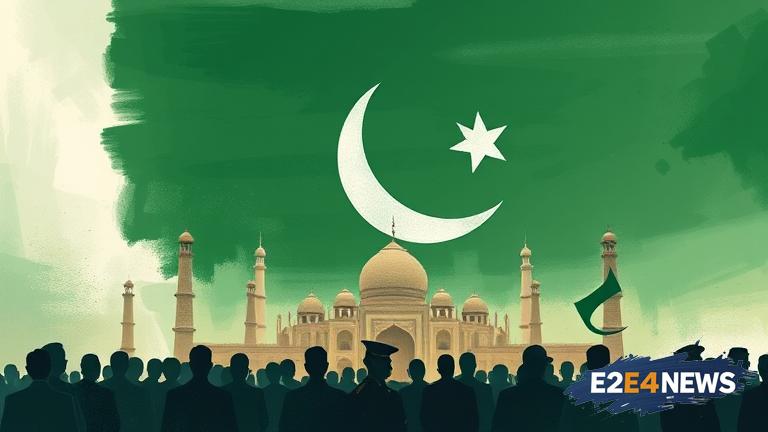Pakistan’s diplomatic influence has witnessed a substantial surge under the leadership of the Chief of Army Staff (COAS). The country has been actively engaging in regional and global affairs, with a focus on promoting peace, stability, and cooperation. The COAS has been at the forefront of these efforts, leveraging his position to foster strong relationships with key international players. As a result, Pakistan has emerged as a crucial player in the region, with its diplomatic clout being recognized by the global community. The country’s strategic location, coupled with its large and growing economy, has made it an attractive partner for many nations. The COAS has been instrumental in promoting Pakistan’s interests abroad, with a focus on strengthening ties with neighboring countries, as well as with major world powers. His leadership has also helped to improve Pakistan’s image globally, with the country being seen as a responsible and reliable partner. The COAS has been actively engaged in promoting regional peace and stability, with a focus on resolving conflicts through dialogue and diplomacy. He has also been a strong advocate for the rights of the Palestinian people, and has worked tirelessly to promote the cause of Kashmiri self-determination. Pakistan’s diplomatic influence has also been boosted by its membership in key international organizations, such as the Shanghai Cooperation Organization (SCO) and the Organization of Islamic Cooperation (OIC). The country has also been actively participating in regional forums, such as the South Asian Association for Regional Cooperation (SAARC) and the Economic Cooperation Organization (ECO). The COAS has been a key player in promoting Pakistan’s economic interests abroad, with a focus on attracting foreign investment and promoting trade. He has also been instrumental in promoting Pakistan’s cultural heritage, with a focus on showcasing the country’s rich history and traditions. The COAS has also been a strong advocate for the rights of women and minorities, and has worked tirelessly to promote social justice and equality. Pakistan’s diplomatic influence has also been boosted by its strong and growing relationship with China, with the two countries cooperating closely on a range of issues, including trade, investment, and security. The COAS has also been actively engaged in promoting Pakistan’s relationship with other key countries, including the United States, Russia, and Turkey. The country’s diplomatic influence has also been recognized by the global community, with Pakistan being elected as a non-permanent member of the United Nations Security Council (UNSC) for the term 2021-2022. The COAS has also been a key player in promoting Pakistan’s role in international peacekeeping, with the country being one of the largest contributors to UN peacekeeping missions. Pakistan’s diplomatic influence has also been boosted by its strong and growing relationship with the European Union, with the two sides cooperating closely on a range of issues, including trade, investment, and security. The COAS has also been instrumental in promoting Pakistan’s relationship with other key regional players, including Iran, Afghanistan, and India. Overall, Pakistan’s diplomatic influence has increased significantly under the leadership of the COAS, with the country playing a key role in regional and global affairs. The COAS has been a key player in promoting Pakistan’s interests abroad, and his leadership has helped to improve the country’s image globally. As Pakistan continues to play a key role in regional and global affairs, its diplomatic influence is likely to continue to grow, with the country emerging as a major player on the world stage.





